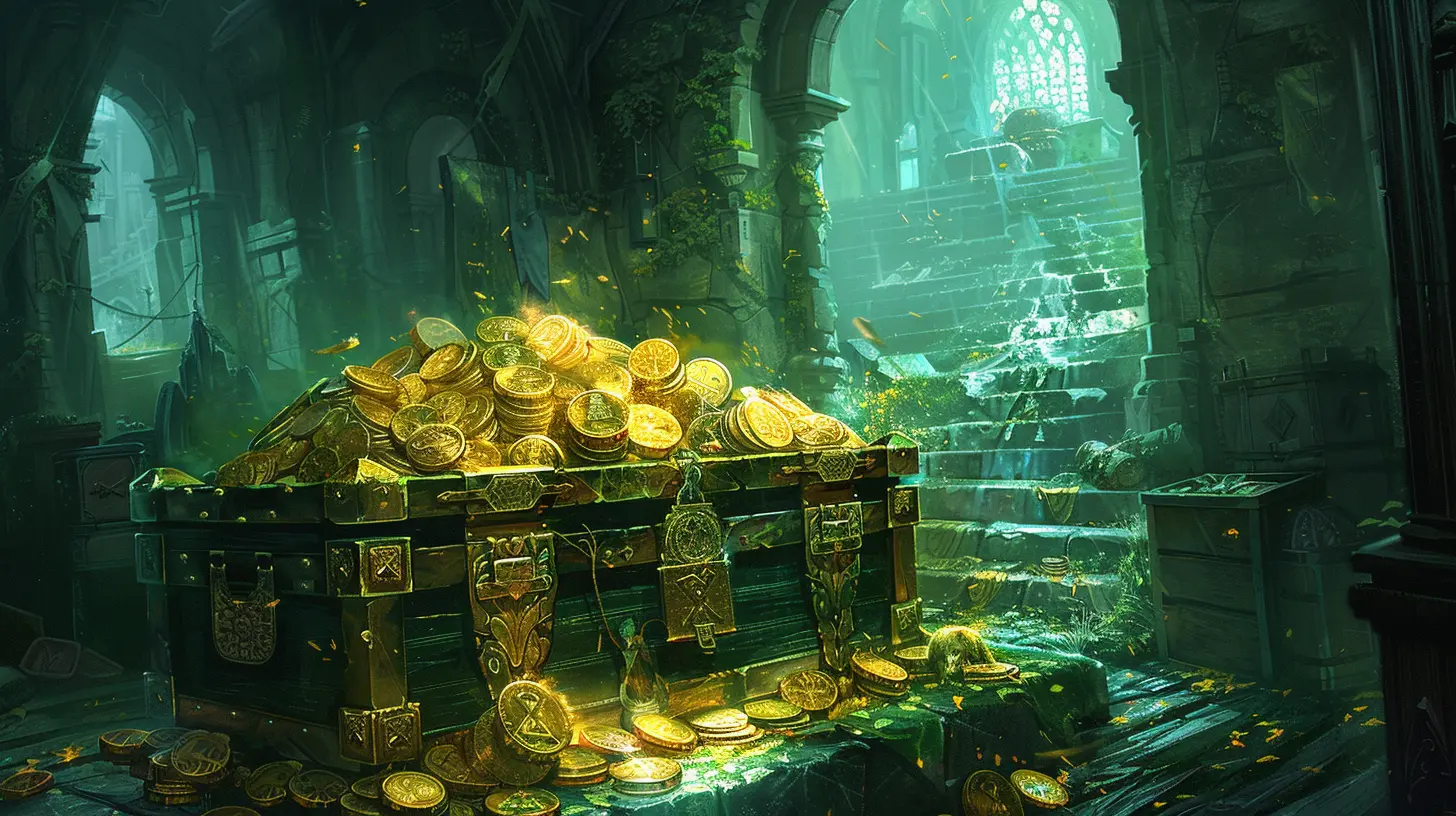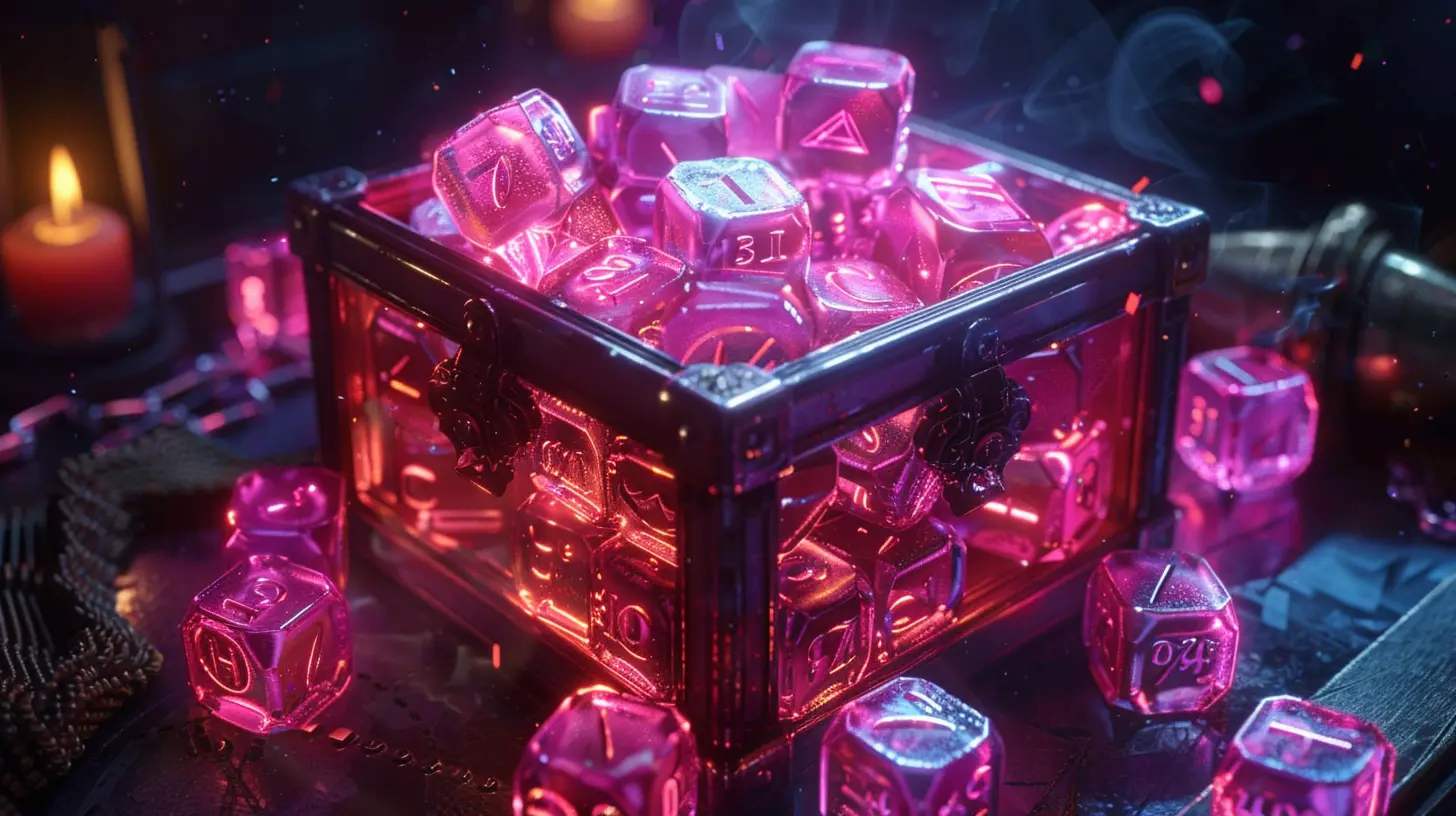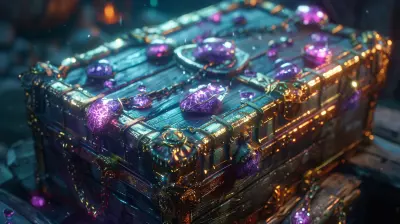Reward Systems and Microtransactions: How Game Studios Keep You Hooked
27 July 2025
Let’s face it — you’ve probably been there.
You’re plowing through your favorite game, maybe it’s a colorful RPG or an adrenaline-pumping shooter. You just unlocked a shiny new loot box, your heart's thumping, and you’re praying for that legendary skin. You click, it opens, and BOOM — dopamine rush.
Sound familiar?
Welcome to the world of reward systems and microtransactions — the dynamic duo of modern gaming that's sneakily brilliant, slightly controversial, and oh-so-effective at keeping you glued to your controller (or your phone, let’s not judge).
So, how exactly do game studios craft these irresistible systems that turn us into loyal, loot-chasing players? Grab your Mountain Dew. Let’s dive deep into this rabbit hole, pixel by pixel.
🎯 The Psychology Behind Gaming Rewards
Let’s start with our brains — those squishy command centers that thrive on motivation and sweet, sweet gratification.The Dopamine Delight
Game developers are the master chefs of dopamine delivery. They sprinkle just the right blend of challenges, surprises, and rewards to keep our brains lighting up like a pinball machine.Every time you level up, win coins, or complete a tough mission, you get a little mental high. That's dopamine doing its thing — and trust us, your brain loves it.
Variable Reward Schedules: A Dose of Unpredictability
Remember slot machines? Games use a similar concept called variable reward schedules. You don’t know when the reward is coming, but you keep playing just in case this next loot drop is the one.It’s kind of like opening birthday presents, except you're doing it 30 times a day — and hoping for that ultra-rare Legendary from the depths of gaming Valhalla.
🎁 Loot Boxes, Battle Passes & Daily Rewards (Oh My!)
There’s no shortage of creative ways developers tempt us into staying just… one... more... level.Loot Boxes: The Digital Cracker Jack Prize
They’re flashy, random, and incredibly tempting. Loot boxes are the scratch-off tickets of the gaming world. You buy one (or earn it), open it, and hope you get something good — like a cool new skin or a powerful item.The trick? The randomness makes it addictive. That uncertainty fires up our brains and keeps us craving more.
Battle Passes: FOMO With a Timeline
Ah, the Battle Pass. Pay once, complete challenges, and unlock cosmetic goodies as you go — it’s genius.Why? Because it has a timer. The moment you realize you’ve only got five days left to unlock that exclusive dragon-themed armor, panic sets in. Suddenly, skipping sleep to grind XP seems like a solid life choice.
Daily Rewards: “Just Log In!”
Ever notice how some games offer daily log-in bonuses? Just show up and boom — free stuff.It’s the digital equivalent of your barista giving you a free donut just for walking by. Who’s gonna say no? And if you miss a day? Ouch. It's like losing a perfect attendance trophy — and nobody wants that kind of shame.
🤑 Microtransactions: The Wallet Whisperers
Microtransactions are how free-to-play games make their billions. They let you buy in-game currency, cosmetics, power-ups, and more — often for just a buck or two. Sounds harmless, right?Spoiler: It's not always.
Cosmetic vs. Pay-to-Win
There’s a big difference between buying a funky pink hat and paying real cash to become an unstoppable war machine.- Cosmetic Only: Think Fortnite. Cool dances, fancy outfits — but none of it affects gameplay.
- Pay-to-Win: The dark side. Games where real money equals real power, often leading to frustration from non-paying players.
Pay-to-win schemes can wreck balance faster than a lag spike in a ranked match.
Whale Spotting: A Few Spend, Many Don’t
Here’s where it gets wild: Most microtransaction revenue comes not from every player, but from a tiny chunk of big spenders known affectionately as "whales."A whale might drop hundreds or even thousands on their favorite game. And the rest of us? We’re the krill — occasionally tossing in $5 for a cool cape and hoping to look half as cool.
🎮 Why These Systems Work So Dang Well
Developers aren’t just throwing random mechanics at the wall to see what sticks. There’s actual science and strategy behind it all.1. Progression Hooks
Games are built on progression. Unlock this. Upgrade that. Reach the next level.These systems tap into our desire for growth — and they mess with our heads. Just one more point… one more upgrade… one more hour…
2. Social Triggers
Multiplayer games often use social elements to drive purchases. Ever been the only one in the lobby without the cool new skin? Yeah, that’s intentional.You don’t want to be the digital equivalent of showing up to prom in pajamas.
3. Time-Limited Events
Nothing says "Buy Now!" like a ticking clock.Limited-time skins, flash sales, seasonal events — they all crank up the urgency and pull out the ol’ credit card from even the most frugal gamer’s wallet.
🔍 Are Reward Systems Manipulative?
Now here’s the spicy question.Are these mechanics manipulative? Or are they just clever ways to enhance the experience?
Well, it depends who you ask.
The Good 🟢
- Reward systems can make games more fun and rewarding.- Microtransactions help support free-to-play models.
- When done ethically, they offer customization without hurting gameplay.
The Bad 🔴
- Some systems prey on addictive behavior.- Kids and vulnerable players can rack up big bills.
- Pay-to-win models can destroy competitive balance.
💡 Tips to Game Smart (And Save Your Wallet)
Love your loot but don’t wanna end up selling your car for V-bucks? Here are some pro tips:Set a Monthly Budget
Decide in advance how much you’re willing to spend. Treat it like a subscription.Watch for Paywalls
If a game suddenly becomes ridiculously hard unless you spend — red flag.Don’t Chase the FOMO
There will always be another skin, another event. Take a breath. Walk away. Pet a cat. You’ll survive.Know When to Quit
If a game stops being fun and starts feeling like a job? Might be time for a break — or a new game.🔮 The Future of Game Monetization
Game studios are always evolving, and the next wave of monetization is already on the horizon.Subscription Services (Netflix for Gamers)
Services like Xbox Game Pass have shaken things up. More content, one flat fee. Will this replace microtransactions? Probably not — but it’s changing the landscape.Blockchain & NFTs (Yup, That’s a Thing)
Some studios are experimenting with blockchain-based items that players can buy, sell, or trade. It’s still early days, and reception is... mixed (at best), but it could reshape digital ownership in gaming.More Transparency (Fingers Crossed)
As players get savvier, studios are being pushed to be more transparent about odds in loot boxes and costs. The days of shady mechanics might be numbered — we hope.🧠 Final Thoughts: Play Smart, Have Fun
Reward systems and microtransactions are like the sugar and spice of modern game design — a little sweet, a little overwhelming, but irresistible when done right.They keep us engaged, fired up, and sometimes — just sometimes — willing to spend $5 on a digital banana suit.
At the end of the day, it’s about balance. Play for fun, not pressure. Spend wisely. And remember: No skin is worth your rent money.
Now go out there, log in, snag that daily reward, and maybe — just maybe — open a loot box. But only one. (Okay, maybe two
all images in this post were generated using AI tools
Category:
In Game PurchasesAuthor:

Madeleine McCaffrey
Discussion
rate this article
2 comments
Caelum Lawrence
Great article! 🎮 It's fascinating how reward systems and microtransactions enhance our gaming experiences. They really know how to keep us engaged and coming back for more fun! Keep it up!
November 12, 2025 at 3:52 AM

Madeleine McCaffrey
Thank you! I'm glad you enjoyed the article and found the topic engaging. It’s amazing how these systems shape our gaming experiences!
Elin Soto
Great article! It’s fascinating to see how reward systems and microtransactions shape our gaming experiences. Thanks for shedding light on this topic!
July 28, 2025 at 4:00 PM

Madeleine McCaffrey
Thank you! I'm glad you found it interesting. Reward systems and microtransactions certainly play a huge role in shaping our gaming experiences!


